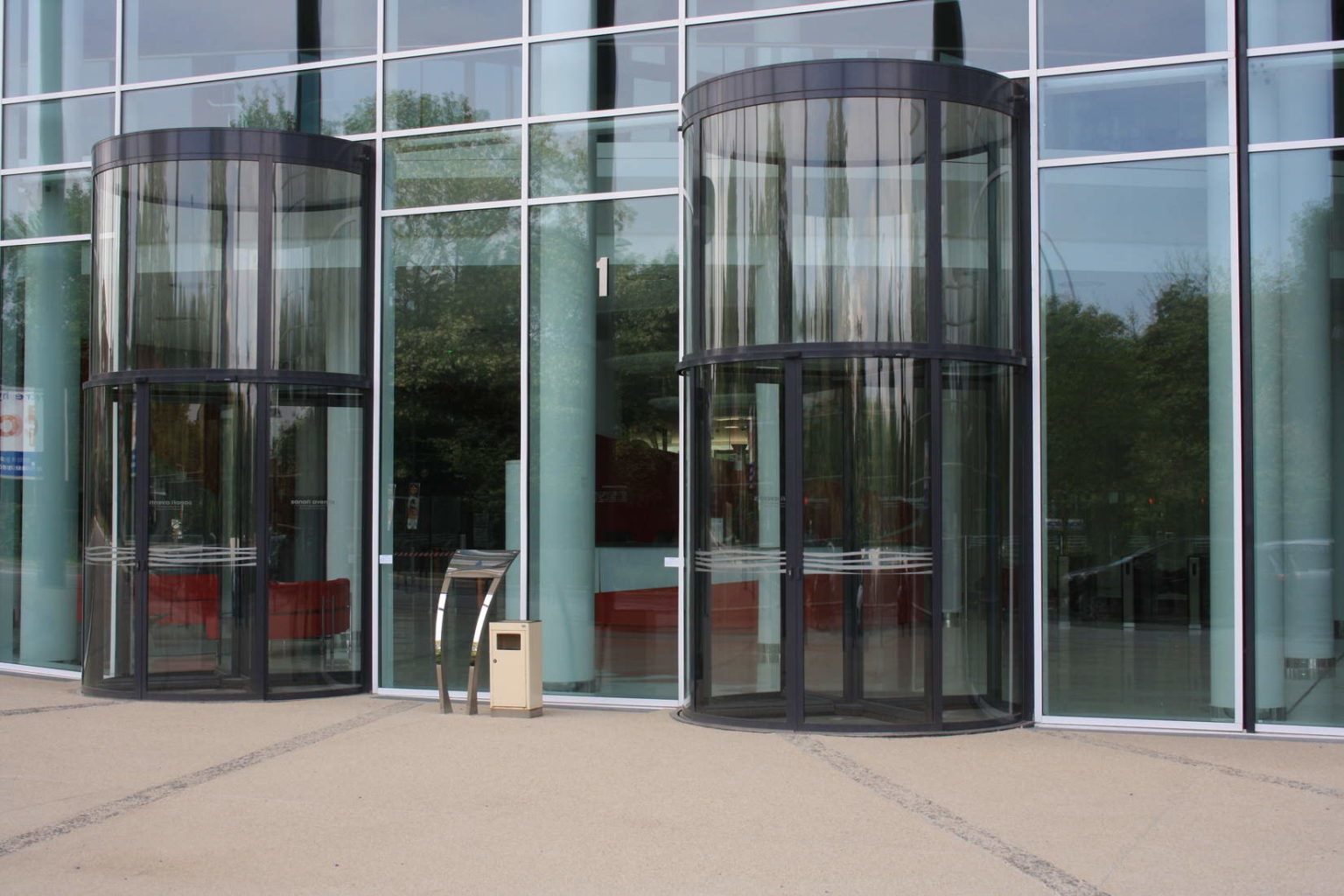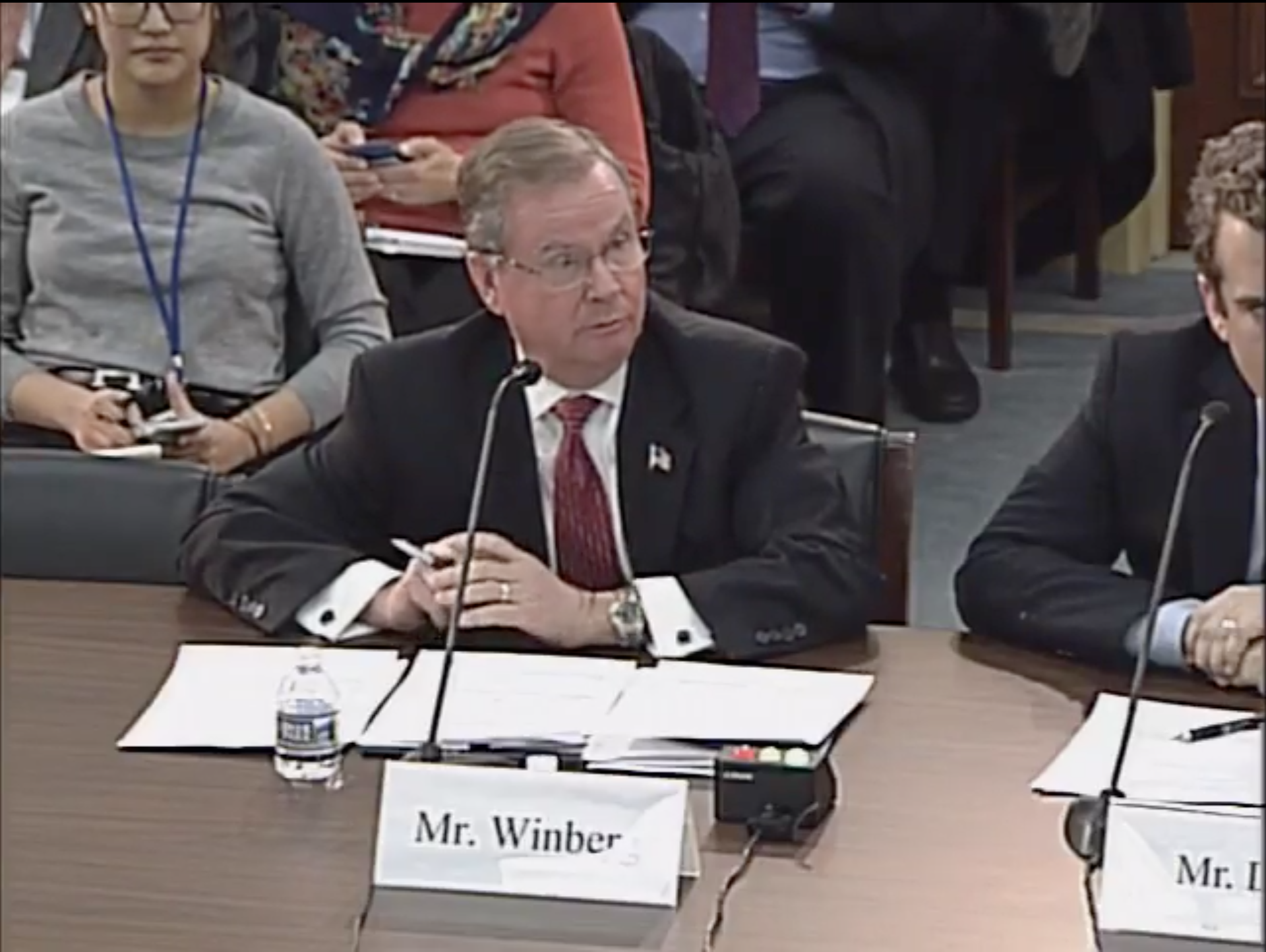Last week the U.S. House of Representatives’ Committee on Energy and Commerce held a subcommittee hearing on two bills to expedite permitting for exports of natural gas. Domestic production of this fossil fuel has been booming in recent years, mainly thanks to hydraulic fracturing (“fracking”) opening up vast reserves in shale formations.
Several former and present committee staffers have either taken oil and gas industry-sponsored trips as staffers or spun through the government-industry revolving door between Congress and the lobbying sector. And all of the politicians backing the two bills under consideration have taken tens of thousands of dollars in contributions from the oil and gas industry for their 2018 mid-term election campaigns.
The hearing featured testimony from Charlie Riedl of the Center for Liquefied Natural Gas, a group founded by the American Petroleum Institute, along with other industry representatives. Only one climate advocate spoke at the hearing, which also featured testimony from representatives of the U.S. Federal Regulatory Commission (FERC) and the U.S. Department of Energy (DOE).
Both bills, the Unlocking Our Domestic LNG Potential Act (H.R. 4605) and Ensuring Small Scale LNG Certainty and Access Act (H.R. 4606), implicate DOE and FERC directly, agencies with direct oversight of the permitting process for liquefied natural gas (LNG) exports. H.R. 4605 calls for expedited permitting of conventional, large-scale LNG shipments, in part by cutting DOE from the approval process. H.R. 4606, on the other hand, pushes for so-called “small-scale” LNG exports (based on the tanker size, not volume exported from a site) to be deemed in the “public interest” under Section 3(c) of the Natural Gas Act, which would exempt them entirely from FERC and DOE regulatory reviews.
Parallel Push from Energy Department
The DOE itself, as previously reported by DeSmog, has proposed a regulation that essentially mirrors the goals of H.R. 4606. In a bizarre twist to that story, many of the public comments submitted to the DOE in support of that proposed rule appear to be anonymously written copy-pastes from previous industry-authored materials. U.S. Sen. Marco Rubio (R-FL) and U.S. Sen. Bill Cassidy (R-LA) also introduced a bill in October much like H.R. 4606, titled the Small Scale LNG Access Act.
Small-scale LNG does not mean smaller levels of exported gas but instead refers more specifically to the type of tank carrying the gas abroad. The leading company in this emerging industry is Tellurian, which was co-founded by Charif Souki, founder and former CEO of the pioneering LNG export company, Cheniere.
Tellurian did not disclose lobbying for this legislation in particular or small-scale LNG more broadly in its most recent lobbying disclosure, which lists its lobbyists as Ankit Desai and Majida Turner. Desai served as a campaign finance bundler for Hillary Clinton’s 2016 presidential campaign, while Turner formerly served as an assistant to the U.S. Secretary of State under President George W. Bush, Spencer Abraham. But the company has explicitly stated previously that its business plan revolves around the export of small-scale LNG and that the term is a misnomer.
“So people have started talking about small-scale and mid-scale and we’ve sort of chuckled at that. As you would imagine, there is nothing small scale about LNG,” Tellurian CEO Meg Gentle said in a March 2017 interview. “It’s just making the refrigerator component itself a little bit more modular, repeatable and standardized. But we’re still using the largest [General Electric] turbines, the largest storage tanks ever built.”
DOE Supports Bills, Upton Mentions Puerto Rico
Industry connections also exist among the DOE members who testified at the LNG bills’ hearing. Steve Winberg, Assistant Secretary for Fossil Energy for the DOE, formerly worked as head of research and development for the shale gas drilling company CONSOL Energy. He spoke at the hearing in support of both bills.
“When it comes to fossil fuels, the United States has become the world’s largest combined producer of oil and natural gas, resulting in an abundance of reliable and affordable energy resources available for domestic use and for export,” said Winberg in his statement to the committee. “The Department appreciates the ongoing bipartisan efforts to address our nation’s energy challenges, and looks forward to working with the committee on the legislation on today’s agenda and any future legislation.”
Credit: Steve Winberg, U.S. Department of Energy Assistant Secretary for Fossil Energy; U.S. House of Representatives Committee on Energy and Commerce, Subcommittee on Energy
Also at the Subcommittee on Energy hearing last week, Chairman and U.S. Rep. Fred Upton (R-MI) said that expediting permitting for small-scale LNG exports was necessary because it would allow LNG to flow to Puerto Rico, whose electricity grid was destroyed by Hurricane Maria last fall and is now under repair.
“As we learned on our trip, Puerto Rico’s grid was in very rough shape to begin with and many of their power plants were so outdated they were still burning petroleum,” Upton said in his opening remarks. “I believe there is real potential for Puerto Rico to expand their use of natural gas, and these bills — especially the small-scale LNG bill — can be part of the solution.”
Upton has received over $1 million in campaign contributions from the oil and gas industry throughout his congressional career, including $10,000 from Energy Transfer Equity (a subsidiary of pipeline giant Energy Transfer Partners, owner of the Dakota Access pipeline and co-owner of the proposed Lake Charles LNG export terminal), $5,000 from Halliburton, and another $5,000 from Koch Industries for his 2018 re-election campaign. Upton has received $101,950 in campaign contributions from Energy Transfer Partners over his career in Congress.
According to his 2017 financial disclosure forms, Upton has tens of thousands of dollars in investments in oil and gas companies such as ExxonMobil, Chesapeake Energy, Chevron, EOG Resources, and Schlumberger.
Committee Revolving Door, Industry Trips
Many current and past staffers on the Subcommittee on Energy have either worked for the oil and gas industry or taken trips sponsored by it.
The most prominent among them is Maryam Sabbaghian Brown, currently the Vice President of Federal Government Affairs for Sempra Energy, which owns the proposed Cameron LNG export facility in southwest Louisiana and the proposed Energí a Costa Azul LNG export site in Baja California just south of the U.S.-Mexico border in Mexico. Brown formerly served as chief legal counsel for the subcommittee. Her husband, Stephen Brown, works as Vice President of Federal Government Affairs for the pipeline company Tesoro. Beyond her subcommittee work, Brown in the past served as a policy adviser for U.S. House Majority Leader Paul Ryan (R-WI).
According to Sempra’s quarter three lobbying disclosure form, Brown lobbied the DOE and Congress on both a “General discussion of legislative proposals to facilitate permitting of natural gas infrastructure” and a “General discussion of liquefied natural gas (LNG).”
Additionally, the Subcommittee on Energy’s recently departed lead staffer, Tom Hassenboehler, previously worked as a lobbyist for America’s Natural Gas Alliance (ANGA) and now co-heads a lobbying and consulting firm named The Coefficient Group.
Ben Lieberman, who serves as legal counsel for the House Committee on Energy and Commerce, was one of several staffers who has taken industry-sponsored trips. In his case, Lieberman took a day-long trip sponsored by the American Exploration and Production Committee (AXPC) to visit a fracking site owned by Pioneer Natural Resources located in the Eagle Ford Shale near San Antonio, Texas, according to ethics forms reviewed by DeSmog. Wyatt Ellertson, a research associate for the House Energy and Commerce Committee, also went on a 2017 trip to Texas sponsored by AXPC, according to disclosure forms reviewed by DeSmog.
Greg Zerzan, another legal counsel for the committee, formerly served as a lobbyist for Koch Industries. Furthermore, committee deputy staff director Mike Bloomquist has served as a lobbyist for ANGA and subcommittee Senior Adviser and Staff Director Rick Kessler formerly lobbied for Tesoro, Sunoco, and Chevron.
Co-Sponsor Cash
The co-sponsors of both bills have also taken tens of thousands of dollars from the oil and gas industry for the 2018 campaign cycle.
For example, in the 2018 race alone, the oil and gas industry has donated $41,200 to U.S. Rep. Bill Johnson (R-OH), $79,800 to U.S. Rep. Bill Flores (R-TX), and $144,450 to U.S. Rep. Kevin Cramer (R-ND). The one Democrat backing the bills, U.S. Rep. Henry Cuellar (D-TX), has taken $51,500 from the oil and gas industry for the 2018 election cycle. That includes $5,000 each from ExxonMobil, Chevron, and Halliburton, and another $2,500 from Koch Industries.
It is not clear if the bills will go beyond the introduction and hearing phase even with the myriad industry ties working in their favor, particularly during an election year, or if the bills are simply what is known as “message bills,” introduced into the ether mostly for public relations purposes. The Rubio-Cassidy bill, for example, has not gone beyond the introduction phase and has gained no additional co-sponsors since October.
The DOE‘s proposed small-scale LNG rule is still under consideration, with the public comments received now under review.
Main image: Revolving doors. Credit: Lionel Allorge, CC BY–SA 3.0
Subscribe to our newsletter
Stay up to date with DeSmog news and alerts







